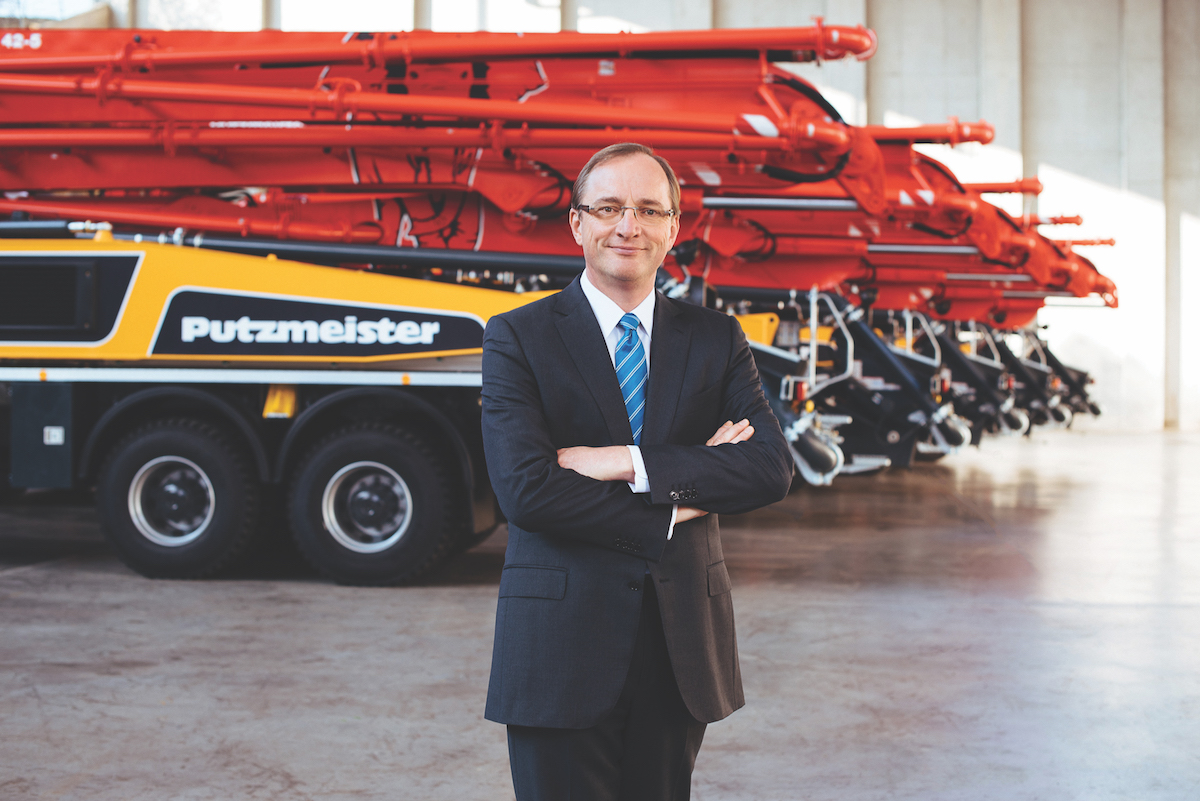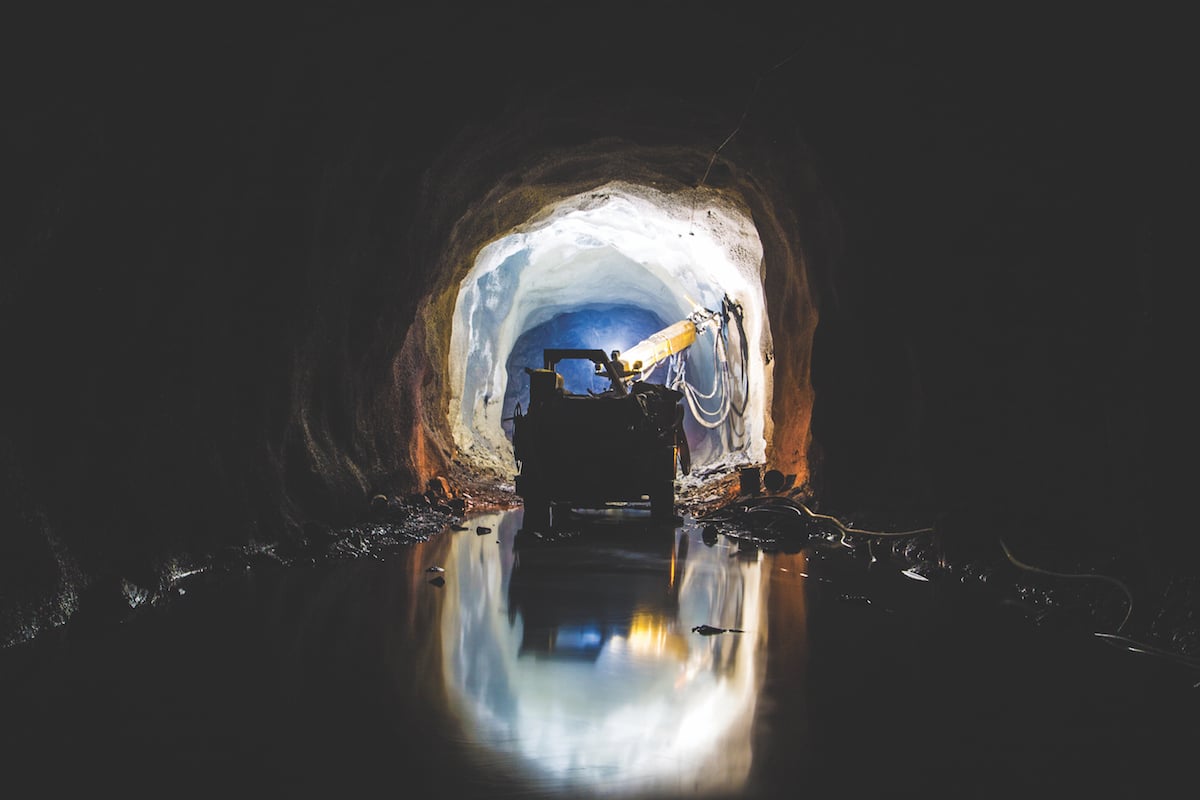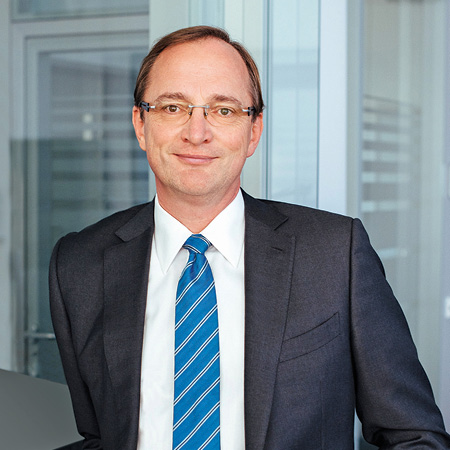The company was going through troubled times when Dr Gerald Karch joined Putzmeister in 2009. “I joined at the very bottom of the GFC,” he explains. “The company’s turnover had dropped by 60%.” What followed was a “painful phase of restructuring” for the concrete- and material-placing equipment manufacturer. Then in 2012, Sany, the Chinese multinational heavy equipment manufacturer, took over the company. “That was a time when we focused heavily on internal issues,” says Gerald. When he took on the chief executive role in 2013, it was time to look outward again.
Putzmeister develops, produces, sells and serves customers worldwide with high-quality, service-oriented machines across a wide range of areas. These include the placing of concrete, truck-mounted concrete pumps, stationary concrete pumps, stationary placing booms and accessories, concrete mixing, industrial technology, pipe delivery of industrial solids, and the removal of excavated material in tunnels and underground. Its focus also spans robot and material-handling technology, mortar machines, plastering machines, screed conveying, and injection and special applications. Putzmeister counts among its markets the construction industry, mining and tunnel construction with major industrial projects, the pre-cast industry, power stations, sewage treatment plants and waste burners.
Survival of the smartest

What Gerald wanted to develop was a long-term strategy that would deliver robust, sustainable profitability for the company. “When I took over the CEO position, it was more about the strategic set-up of the company rather than seeking out opportunities for growth.” There were, however, some immediate opportunities, such as improving the parts business which had been “neglected for decades”.
“The biggest challenge we’ve faced, and are still facing, is over capacities and intense price pressure in a niche market with restricted volumes.” – Dr Gerald Karch
The main focus of the strategy was to put the customer and their needs at the heart of the company’s day-to-day activities. “We want to deliver better solutions than our competitors,” Gerald says. “To make the most of our global organisation, we’re improving our synergies, ensuring we have best practice, and clarifying our communication responsibilities and roles to empower our organisation to best serve the customer.
“It sounds like a simple goal, but as a company operating with more than 3,000 employees in 90 countries around the world, we are continuously confronted with a wide variety of cultures and legal frameworks. I’d say the biggest challenge we’ve faced, and are still facing, is over capacities and intense price pressure in a niche market with restricted volumes. The key focus for me is what I’d call the survival of the smartest. Global economies are increasingly more volatile, and in that environment the company’s success depends on its flexibility. The business needs to be able to react to whatever comes up and to anticipate the demands of our customers now and into the future. Thus we start the development early and are ready when the demand arises.
“The integrated development process we’ve established provides machines with the highest performance quality and reliability for global markets. Continuous improvement is our way of life; responding to our customer needs and solving their pain points is at the centre of our preoccupations.”
Fairness, integrity & trust
Another of Gerald’s primary targets has been improving and professionalising the company’s internal operations, particularly its procurement organisation. The aim was to ensure the business was making the best use of its international distribution channels. “From my point of view, our partner vendors, in particular, are as essential to our success as the quality and functionality of our product. Putzmeister is embedded, and it’s relying on a network of suppliers from consulting companies to engineering partners and dealers.”
While he admits the business relationship isn’t easy, the cornerstone of its successful collaboration with partners is trust. “Our vision states that we treat our partners with absolute respect, and conduct our business with fairness, integrity and trust at all times,” he says. Gerald highlights a project the company undertook to deliver environmental benefits by saving hydraulic oil. “We significantly reduced the need for hydraulic oil in a machine by developing new filter technology with the company HYDAC in Germany.”

Gerald describes the technology as a typical example of the “win–win situation” it aims to develop with its vendors. “We’re now leading with this technology, and HYDAC has developed its technology even further; it’s now applying it to more products with other customers.”
“At Putzmeister, the people are unbelievably loyal to the company.” – Dr Gerald Karch
A loyal team and strong brand
The engagement and loyalty of its staff is also key to thriving in a competitive environment. “At Putzmeister, the people are unbelievably loyal to the company. It seems to be a genetic code of this company because all of the new people we hire are directly infected.” The vision he revised and developed when he stepped into the CEO role can be seen everywhere within the company. “It doesn’t just state what we want to be; it reflects the mentality of our people.”
Asked about one of his proudest moments since he took on the CEO role at Putzmeister, Gerald nominates the efforts of his team at BAUMA — the world-leading construction machinery fair held every 3 years — in Munich in 2016. “The company presented itself in an exceptional show, and people from all over the world gave us clear and unmistakeable feedback that we’re number one. The whole team and I, after an extremely tiring week on the show, came back happy and very motivated.”
The strength of the Putzmeister brand in the marketplace is something that’s been recognised by its parent company, and it has no plans to dilute it. “Our parent company has promised that Putzmeister will keep its identity and independence,” says Gerald. “The Putzmeister brand has been built over almost 6 decades, and our customers rely on the values of that brand.”
Looking ahead, he predicts that fierce global competition in the concrete construction business will lead to consolidation in the industry. “I expect there’ll be a consolidation process, especially among our Korean competitors. There are too many players in the market at the moment.
“At Putzmeister, we’ve proved that we’re capable of remaining on top even during difficult market circumstances,” he says. “With our improvement programs and our strong network of partners, we’re confident we’ll maintain our leadership position and overcome whatever issues show up.”



